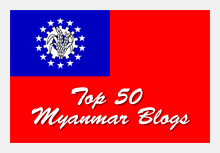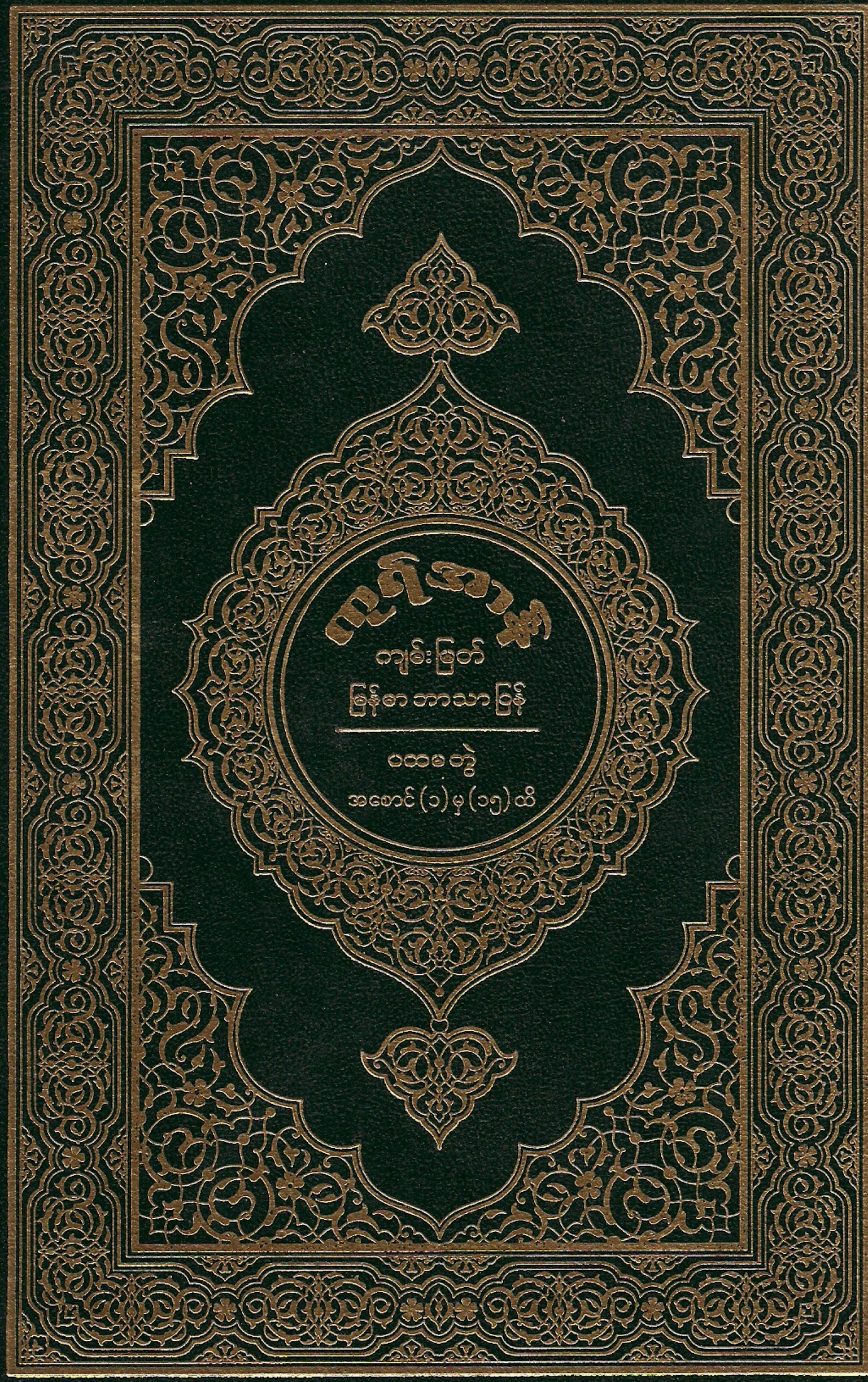In order to get a
Win- win solution deal
in our Dialogue with SPDC
Dr San Oo Aung
Dialogue is defined as the intention to seek mutual understanding and mutual accommodation on an issue or situation through inquiry and learning leading that can lead to consensus in decision-making.
The World Summit for Social Development was held at Copenhagen in 1995 to forge agreement on social challenges and responses to them. It chose social integration as one of three themes, together with poverty eradication and employment creation.
Member States made commitments to promote social integration to create “a society for all”, through fostering inclusive societies that are stable, safe and just and that are based on the promotion and protection of all human rights, as well as on non-discrimination, tolerance, respect for diversity, equality of opportunity, solidarity, security, and participation of all people, including disadvantaged and vulnerable groups and persons.
The 24th Special Session of the General Assembly resolved to strengthen the effectiveness of organizations and mechanisms working for the prevention and peaceful resolution of conflicts, and to increase the capability of relevant United Nations bodies to promote social integration in post conflict situations. Efforts to facilitate people’s full participation, and foster mutual understanding and accommodation through participatory dialogue, are ever more needed now to build a safe, stable and just society for all, and achieve sustainable development and peace.
In order to get a Win-Win solution deal in our Dialogue with the SPDC the Negotiations must be aimed in finding a fair compromise.
We need to sacrifice some of our selfishness, have a Chetana for our country’s future and all must make sure not to insult or dent the ego of the other side.
If we look back to 2001-2004, so called Tan Sri Razali Ismail facilitated dialogue, General Khin Nyunt was a big shot from the SPDC side as he was the S1, PM and the head of very powerful Military Intelligence. But it could not pull it self further from the confidence building stage and totally abandoned when General Khin Nyunt was deposed and thrown into detention and Razali was totally banned by refusing to issue his reentry visa.
The powerful negotiator General Khin Nyunt and UNSG’s representative Razal’s failed even with the dangling USD billion carrot from World Bank because one side think that they are powerful and just tried to use the dialogue as a means to fool the world leaders, reduce the mounting pressure for change and for buying time only.
But when we look at the other highly emphasized or hyped dialogues as Arab Israel Camp David negotiations, high powered facilitators like US Presidents, Jimmy Carter and Bill Clinton even used multi billion rewards for both sides, both side leaders were even awarded with Noble Peace Prizes but the real peace is still like a Mirage in the desert.
I hope that the article in the Myanmar Ahlin, warning the UN not to interfere in the internal affairs of Myanmar and Myanmar would not tolerate the infringement of its sovereignty was just a showoff to safe SPDC’s face. Even UN Secretary General Ban Ki-moon was almost fooled because of lack of experience and because he could not understand the witty street-smart SPDC’s psyche, propaganda and twisting of the tongue.
As Daw Aung San Suu Kyi was allowed to meet her party leaders, I hope that it is the dawn of democracy and reconciliation in our country, leading to the great leap forward to take over its neighbors and ASEAN nations. Please may you all kindly allow me give my TWO CENTS’ worth of advice:
A. To all the parties_
-
NLD and Daw Aung San Suu Kyi. (I hope they will represent all the Ethnic Minorities and religious minorities)
-
SPDC Generals.
-
Facilitators from United Nations headed by Dr Ibrahim Gambari, assisted by resident UN officials, directly reporting to UN Secretary General Ban Ki-moon.
B. On the conflict Resolution
In any conflicts or disagreement in our country, we should consider having to deal with people as individuals and with problems in a systematic manner. But all the interested parties can also help to solve their problems or conflicts if they understand that they can take initiatives to deal with conflicts before they require outside intervention. We must not only think what we want selfishly. We need to consider from our opponents’ side and the present reality or socio-political condition of our country and the outside world.
The following is a list of actions which should or should not be taken when there is conflict. Useful tips are as follows: Do’s and Don’ts of Conflict Resolution.
DOs
-
View the present ‘conflict’ as a natural occurrence
-
Address the conflict quickly, does not just postpone the decision or dialogue.
-
Seek first to understand the whole problem by looking from all point of views, then only we should try to convince our opponents so that they accept our point of view or in other way try to be understood us by others.
-
Listen actively to fully understand the other side’s views and standings interestingly or if possible, sympathetically. And try to find the solution for their alleged grievances, sufferings and requests.
-
Ask open-ended questions but not the questions which could be answered with blunt yes or no, which usually would be on the other side of your standing. Open-ended questions would give the detailed grey scale view instead of just sharp black and white answer.
-
Identify issues, interests and feelings that are dividing the two sides.
-
Acknowledge emotions and sufferings of others as if they are valid
-
Focus on the problem, not the person. Don’t try to attack personally. Don’t try to blocked out or shut-off any one or any party.
-
Be open to creative solutions
-
Clarify areas of agreement, note down and try to follow up with action.
-
Seek assistance from all the sectors, parties that can assist you
DON’T
-
Don’t avoid or postpone or procrastinate to discuss to solve the conflict, otherwise it will escalate into bigger disasters.
-
Don’t assume, judge or blame the others prematurely or if possible never commit this crime.
-
Don’t disregard other party’s interests
-
Don’t attack the speaker, from other party or the facilitator.
-
Don’t interrupt the speaker, let the other party speak as much as he likes and try to listen with interest and enthusiasm.
-
Don’t allow emotions to override the discussion.
-
Don’t focus on personality traits that cannot be changed
-
Don’t impose personal values and beliefs on others
-
Don’t assume your intended message is understood without explaining thoroughly.
-
Don’t try to force or pressure to impose an unfair, unjust agreement.
We need crucial negotiation skill, strategies, tools and techniques to effectively handle this negotiation which involves the greatest political conflict of our country.
-
We need to be able to negotiate better deals and contracts;
-
We need to be able to get a quick improved results for all of us;
-
We need to be able to deal with difficult negotiators;
-
We need to be able to improve relationships;
-
We need to be able to adjust our negotiation style for different situations;
-
We need to be able to create a strong negotiating position (even if we think we are in a weak position, we must keep in mind that most of the people, UN and almost the hole world is supporting us );
-
We need to become better leaders and team-builders;
-
We need to be clever enough to avoid being cheated; and
-
We need to be able to conduct negotiations with confidence.
If we feel that SPDC and Myanmar Tatmadaw is continually taking advantage of us or if we seem to have to fight our corner aggressively, or ally with others, to win the democracy and human rights etc. and we need to struggle a lot to get what we want from Myanmar Tatmadaw and yet we may need their help to stabilize our country later.
If so, we may need to brush up our win-win negotiation skills. We need to be able to reach a fair compromise in this Negotiation so that the results would be the Win-Win for all.
Effective negotiation helps us to resolve situations like this where what want, FULL DEMOCRACY, conflicts with what SPDC and Myanmar Tatmadaw wants, NOT A DEMOCRACY BUT the MILITARY’S TOTAL DOMINENCE FOREVER.
The aim of win-win negotiation is to find a solution that is acceptable to both parties, and leaves both parties feeling that they’ve won, in some way, after the event. There are different styles of negotiation, depending on circumstances.
-
If we do not expect to deal with Myanmar Tatmadaw ever again and we do not need their goodwill, then it may be appropriate to “play hardball”, seeking to win a negotiation while the other person loses out. Many people go through this when they buy or sell a house – this is why house-buying can be such a confrontational and unpleasant experience.
-
Similarly, where there is a great deal at stake in a negotiation, then it may be appropriate to prepare in detail and legitimate “gamesmanship” to gain advantage. Anyone who has been involved with large sales negotiations will be familiar with this.
-
Neither of these approaches is usually much good for resolving disputes with people with whom you have an ongoing relationship:
-
If one person plays hardball, then this disadvantages the other person – this may, quite fairly, lead to reprisal later.
-
Likewise, using tricks and exploitation during a negotiation can undermine trust and damage teamwork.
-
Although a manipulative person may not get caught out if negotiation is infrequent, this is not the case when people work together routinely.
-
At this point, honesty and openness are almost always the best policies.
Preparing for a successful negotiation…
-
As the scale of the disagreement between SPDC and Myanmar Tatmadaw vs Daw Aung San Suu Kyi led NLD and oppositions’ is quite huge, we need a lot of preparation for conducting a successful negotiation.
-
We should purposely show our graciousness by letting them Tatmadaw what they want for small disagreements. We should not waste time for small matters with excessive preparation and heated negotiations as it can be counter-productive because it takes time that is better used elsewhere. It can also be seen as manipulative because, just as it strengthens our position on the small points, it can weaken the other person’s and pushing to fight back all the time to safe their face.
-
However, if we need to resolve a major disagreement, or on principle or majour policy, then we must make sure to prepare thoroughly and fight with full force.
We must think about the following points before we start negotiating:
(a) Goals: what do we want to get out of the negotiation? What do we think the SPDC wants?
(b) Trades: What do we and the SPDC have that we can trade? Their power of control of the country as the government and our support by the people and the world leaders esp. the western democratic countries. These are the facts that each has that the other wants. We should work out to trade these.
(c) Alternatives: if we don’t reach agreement with the SPDC, what alternatives do we have? Are these good or bad? How much does it matter if we do not reach agreement? Failure to reach an agreement may cut all of us out of future opportunities. And what alternatives might the SPDC have?
(d) Relationships: what is the history of the relationship? Could or should this history impact the negotiation? Will there be any hidden issues that may influence the negotiation? How will we handle these?
(e) Expected outcomes: what outcome will people be expecting from this negotiation? What has the outcome been in the past, and what precedents have been set?
(f) The consequences: what are the consequences for all of us of winning or losing this negotiation? What are the consequences for the SPDC and military?
(g) Power: who has what power in the relationship? Who controls resources? Who stands to lose the most if agreement isn’t reached? We must understand that SPDC and Myanmar Military have the governing power to deliver to all of us.
(h) Possible solutions: based on all of the considerations, what possible compromises might there be? For a negotiation to be ‘win-win’, both parties should feel positive about the negotiation once it’s over. This helps people keep good working relationships afterwards.
This governs the style of the negotiation – histrionics and displays of emotion are clearly inappropriate because they undermine the rational basis of the negotiation and because they bring a manipulative aspect to them.
Despite this, emotion can be an important subject of discussion because people’s emotional needs must fairly be met. If emotion is not discussed where it needs to be, then the agreement reached can be unsatisfactory and temporary. Be as detached as possible when discussing your own emotions – perhaps discuss them as if they belong to someone else.
The negotiation must be a careful exploration of our position and the SPDC’s position, with the goal of finding a mutually acceptable compromise that gives us both as much of what we want as possible.
People’s positions are rarely as fundamentally opposed as they may initially appear – the other person may have very different goals from the ones you expect!
In the present situation, we could find that the SPDC wants what we are prepared to trade, and that we are also prepared to give what the SPDC wants.
But this is not the absolute truth as SPDC must give away its total dominance. Then it is fair for the SPDC to try to negotiate some form of compensation for doing so – the scale of this compensation must be good enough for them. Ultimately, both sides should feel comfortable with the final solution if the agreement is to be considered win-win.
We should not consider we win- SPDC lose negotiation as we may need Myanmar Military to continue protect us from the inside and outside aggressors. We need them to protect the total disintegration of our country. Equally, we must expect that if they need to fulfill some part of a deal in which you have “won,” they may be uncooperative and legalistic about the way they do this.
The form of meeting
A meeting usually means everyone is together in the same room at the same time and this is the major situation in which facilitation is practiced. With the introduction of modern telecommunications the field has grown to embrace other forms of meetings:-
-
Same time same place – the traditional meeting in a room with all parties present.
-
Same time different place – the teleconference with either all parties on separate telephones or some in separate rooms with speaker phone connection. The internet chat also falls in this category.
I hope that this is the dawn of democracy and reconciliation in our country, leading to the great leap forward to take over our neighbors and ASEAN nations.
Filed under: Analysis, Burma, Burmese, Burmese History, Democracy, Democratic activists, democratization, Dialogue, English Article, Game Plan, Myanmar, Myanmar Military, Politics, reconciliation, SPDC | Tagged: Burma, Dialogue, Dictators, Military Junta, Myanmar, NLD, SPDC, UN |












+(Small).jpg)


Leave a comment